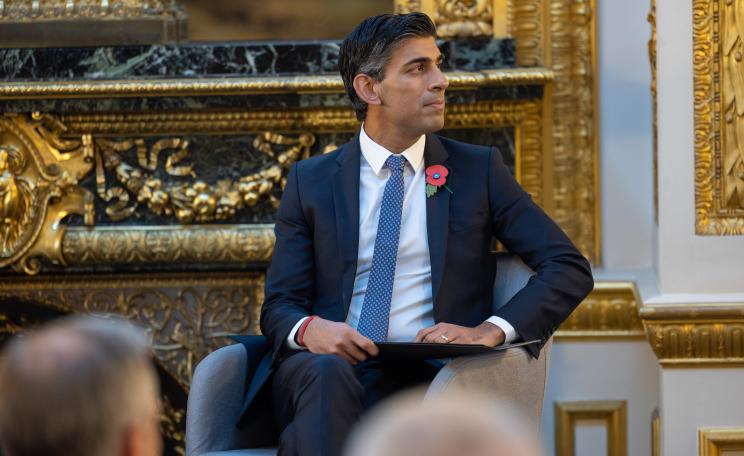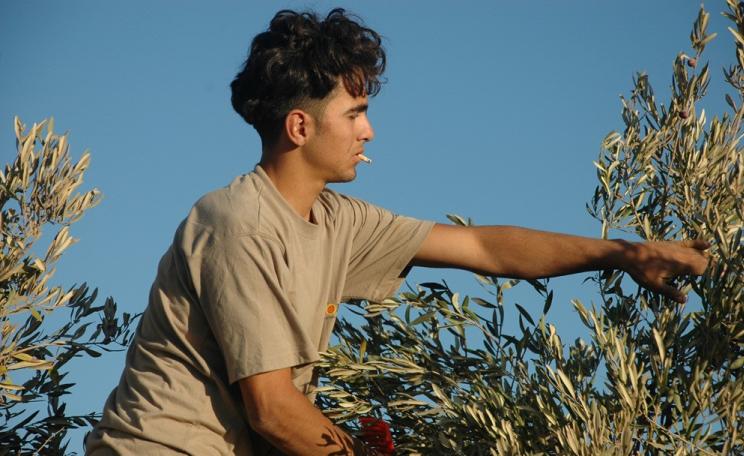Greta Thunberg has long been the poster child of youth climate activism. Despite her pleas for the media to look toward other youth activists, her requests have seldom been heard by the global media.
Whilst those who are in power and making decisions are likely to die from old age, younger generations could see the worst of climate breakdown. They are shouting out for their fears to be addressed by global leaders, but they're tired of empty promises and no action.
The threat of food insecurity, freak weather occurrences and biodiversity collapse are heavy on the minds of the youth. It is no surprise that eco-anxiety is on the rise amongst young people, especially for those in the Global South.
At the same time, black and ethnic minority voices don't often make it into the decision-making spaces about climate, despite representing the countries that are most at risk from the consequences of global heating.
In order to draw attention to some of the world's most prolific climate activists - we've compiled a list of six inspirational youth leaders, whose voices are rippling out into the world. If only politicians, policy-makers, and global leaders would listen.
1. Vinisha Umashankar

Vinisha Umashankar is a 16-year-old Indian-born climate activist, whose entrepreneurial spirit started on a local level. She noticed that street vendors ironing carts were powered by coal, polluting the air before being dumped onto the roadsides.
Umashankar poured over college textbooks about solar power. She later approached India's National Innovation Foundation to promote the idea of solar-paneled ironing carts for street vendors.
The idea was accepted. Today, solar-paneled ironing carts are gaining global recognition. They allow up to six hours of usage a day, and any extra power can also be used as phone socket chargers, which passers-by can use to supplement the vendor's income. The ironing cart is now attracting global recognition.
In her speech at COP26 in Glasgow last year, Umashankar says: “I’m a girl from the earth, and I’m proud to be so. I’m also a student, innovator, environmentalist, and entrepreneur, but most importantly I’m an optimist.”
Twitter: @VinishaOfficial
2. Xiye Bastida

Xiye Bastida is a Mexican-Chilean, 19-year-old climate activist and member of the indigenous Mexican Otomi-Toltec nation.
She is an organizer of Fridays for Future and is also co-founder of the Re-Earth initiative, which aims to make the climate movement more intersectional. For the first climate strike in March 2019, Bastida mobilized 600 students from her school.
She attended her first United Nations climate conference in February of 2017, where she successfully brought Indigenous knowledge into decision-making spaces.
Her participation led her to win the Spirit of the UN award in 2018. She is on the administration committee of the People's Climate Movement and a former member of the Sunrise Movement and Extinction Rebellion.
In an interview with Vogue, Bastida says how she is in alignment with Greta Thunberg, only she finds her own place in the climate conversation.
She says: “Voices aren't being heard because you’re not inviting them to decision-making tables.
"So diversity, inclusion, all of the things that Greta wasn’t representing because she couldn’t represent them. But then obviously, she was very well aware about that—and her presence brought all of this attention on us.”
Twitter: @xiyebastida
3. Vanessa Nakate

Vanessa Nakate is a Ugandan climate justice activist. Nakate’s motivation for climate action came from watching farms getting destroyed by increasing floods and droughts.
In an interview with Amy Goodman from Democracy Now! Nakate says: “If the farms are destroyed by droughts and crop production is less, that means that the price of food is going to go high.
"So it will only be the most privileged who will be able to buy food…. in my county, a lack of rain means starvation and death for the less privileged."
She recently appeared on France 24 News to draw global attention to a crude oil pipeline that is being built across the heart of Africa.
Nakate says: "The pipeline has already left over 80,000 people displaced, this will contribute to 34.3 million tonnes of CO2 every year.
"This will go over 200 rivers, a third will go over the Victoria Basin which is depended on by over 40 million people for water and food. It will also go through the oldest national park in Uganda.
"These corporations only take profit, and only leave the oil spills for the people."
Twitter: @vanessa_vash
4. Vic Barrett

Vic Barrett is a 20-year-old Honduran/American student and a fellow with the Alliance for Climate Education. At the age of 12, Barrett experienced the raff of Superstorm Sandy, which left 147 people dead in America.
It was then that Barrett had noticed how people of colour were disproportionally affected by the storm. He tells Our Climate Voices:
“Well, I’m young and I’m Latinx and I’m Black and I’m queer and I’m a first-generation American. This is something that really affects a lot of the identities that I hold and a lot of people like me. And I just couldn’t ignore it after that.”
Having also witnessed climate change whilst visiting his family in Honduras, Barrett finds it disheartening that those making decisions around climate, lack personal experience or connection to those who fall victim to climate breakdown.
Barrett has gone on to fight in court in union with 20 youth climate activists, who filed a constitutional climate lawsuit Juliana vs. United States. Barret has also spoken publicly about the inequalities his community face in the UN Climate Talks.
Twitter: @vict_barrett
5. Xiuhtezcatl Martinez

Martinez, also known as X, is an environmental activist and hip-hop artist from Mexico. Connecting to his Aztec roots, X often speaks about the effects of fossil fuels on the indigenous and marginalised communities. He was also one of the youth activists who filed the Juliana vs. United States court case.
Finding the cross between borders and languages, X delivered a speech at the United Nations General Assembly in English, Spanish, and his native language, Nahuatl. Having previously directed Earth Guardians, Martinez believes that education and young people are key in creating significant social and environmental change. He was also part of the Juliana vs. the United States lawsuit.
Martinez believes that we need to tackle the fossil fuel industry, as the biggest driver of climate change on the planet. In an interview published in Rolling Stone, Martinez says: "The marching in the streets, the lifestyle changes haven't been enough so something drastic needs to happen.
"The change that we need is not going to come from a politician, from an orangutan in office, it's going to come from something that's always been the driver of change – people power, power of young people."
Twitter: @xiuhtezcatl
This Author
Yasmin Dahnoun is an Editorial Assistant at The Ecologist, she likes to take a solution-based approach to climate breakdown. She is interested in sustainable farming, land rights, and change from the roots up. She tweets as @dahnoun_







